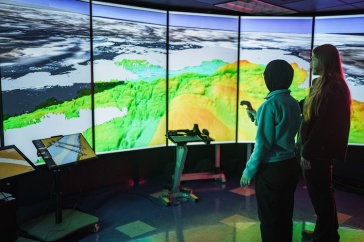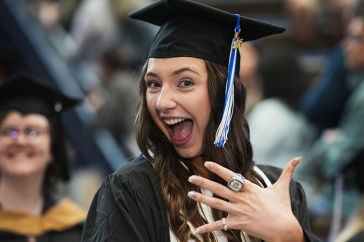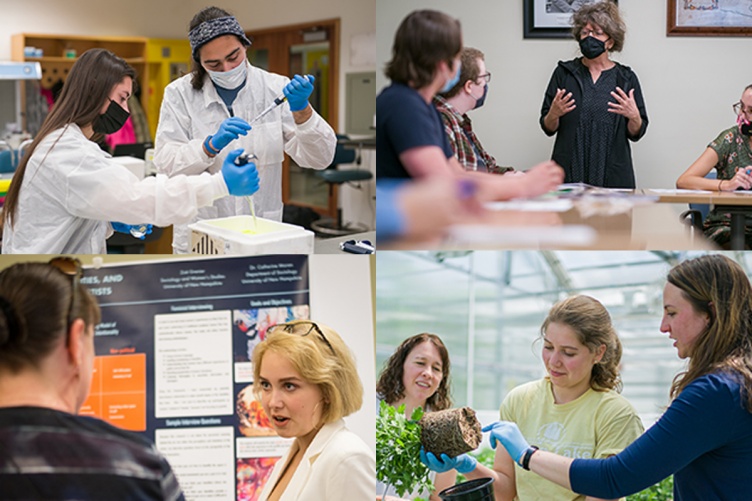
First celebrated in the countries of Austria, Denmark, Germany and Switzerland in 1911, International Women’s Day (IWD) was adopted by the United Nations (UN) as an official holiday in 1975. This year, the UN celebrates IWD on March 8 with the theme of “Gender equality today for a sustainable tomorrow,” highlighting the importance of advancing gender equality and the impact that the climate crisis will have on women around the globe.
It's important to celebrate the work and achievements of the women who make up the University of New Hampshire community every day. However, we especially want to shed light on their accomplishments on March 8 and throughout Women’s History Month in March. In doing so, we’ve highlighted several women faculty members and the female graduate students they’re working with on research related to equity, climate action, education and similar fields.
Stressing the importance of arctic ecosystems through mentorship
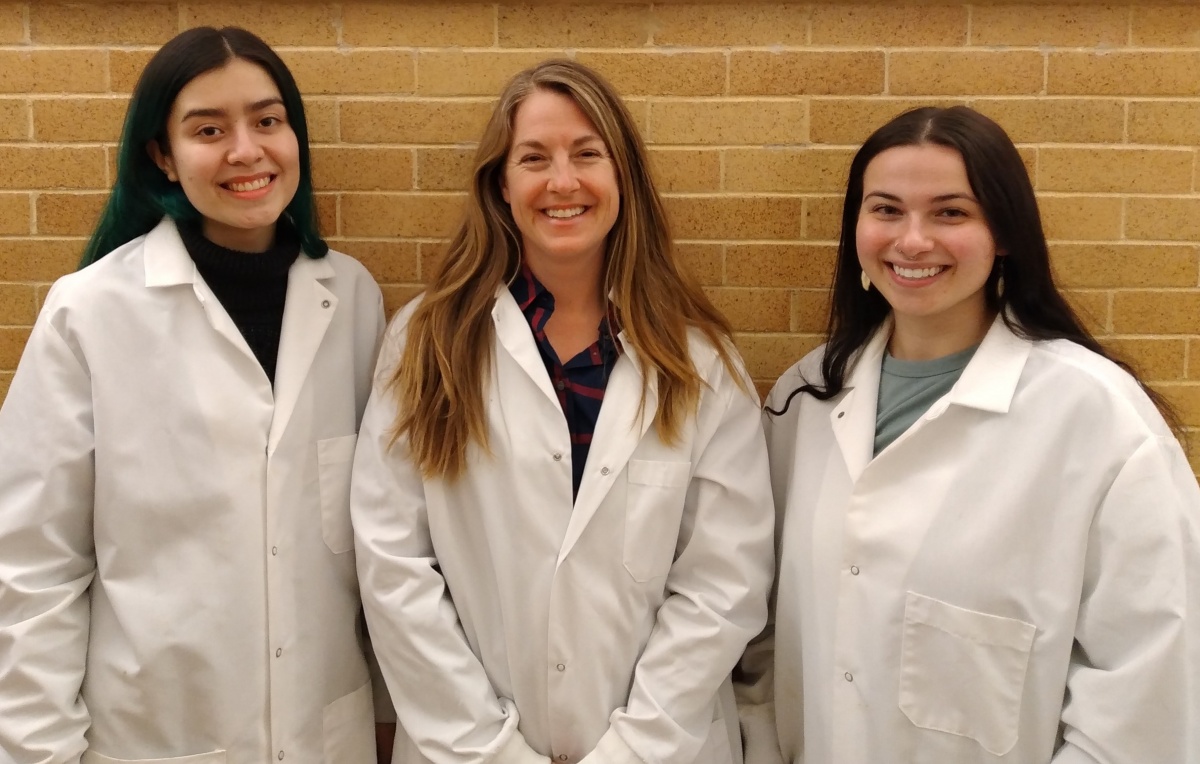
Faculty in UNH’s natural resources and the environment program have a strong legacy of tackling environmental challenges through research and education. So when master’s students Joy O’Brien and Alma Hernandez wanted to pursue careers studying Arctic systems, they turned to Jessica Ernakovich, a faculty member with a UNH research and teaching program focused on Arctic ecosystem changes and their local and global impacts.
O’Brien is tackling the challenge of how microorganisms will proliferate following permafrost thaw. It’s a puzzle with global implications, because when the microbes in the arctic permafrost thaw and degrade, they’ll release greenhouse gases into our atmosphere.
"There’s so much yet to be understood about Arctic ecosystems, and I’m excited to be preparing the next generation of female scientists to study, appreciate and better understand this changing environment," said Ernakovich.
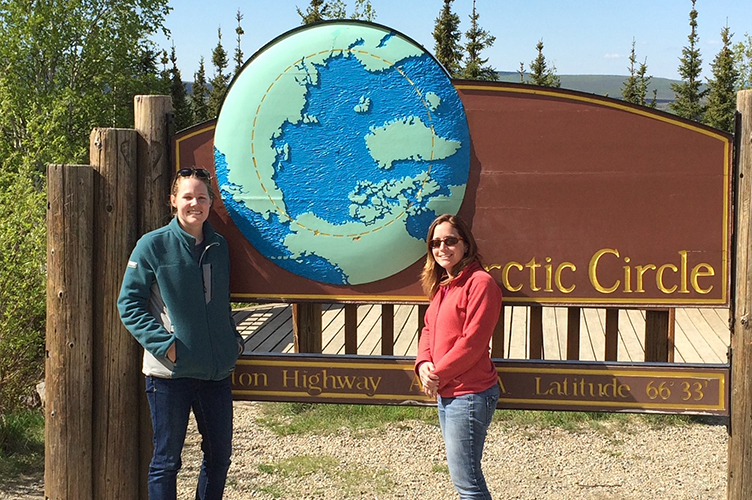
Rebecca Rowe and Ph.D. candidate Jess Steketee also research Arctic system science at UNH. For Rowe, mentoring students is one of the more rewarding and gratifying aspects of her career.
"Many young women are pursuing careers in Arctic research where women are still underrepresented as researchers relative to men," said Rowe. "Given the great importance and complexity of climate change research in the Arctic, it’s important that we foster an interdisciplinary community of scientists where women and members of other under-represented groups are included." Read more
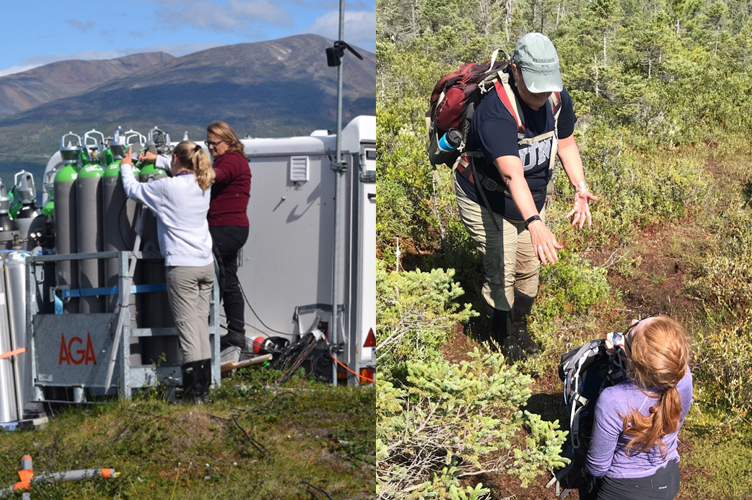
How mentorship can help diversify STEM
Clarice Perryman, a Ph.D. candidate in Earth & environmental science at UNH, describes mentorship as an important component of her education at the university. Working with faculty mentors like Ruth Varner, Professor of Bio-geosciences in the Department of Earth Sciences and Earth Systems Research Center, has helped her grow as a scientist and navigate professional challenges.
"I truly believe that quality mentorship is a key need to increase representation of people historically excluded from STEM because of their gender, racial or other identities," said Perryman.
"Many of my students serve on committees and boards within and outside of UNH that allow them to bring forward the issues of gender equity in our field," Varner added. "Several of my mentees are also leaders in racial and environmental justice, and I am endlessly proud and humbled by their work." Read more

Serving today's seniors
The UNH nursing department has an excellent history of faculty and graduate students collaborating on quality improvement projects through research and application. Clinical Associate Professor Pamela Kallmerten was the ideal mentor for Emily Stewart '21G, a DNP graduate and nurse practitioner at Riverwoods Exeter, a senior retirement community in New Hampshire.
Concerned about the low shingles vaccination rate among Riverwoods residents, Stewart engaged in evidence-based research and translation to develop a simple technology for engaging and educating seniors. Her research created a health dashboard allowing residents to access critical information about the risks of shingles – a painful and potentially dangerous nerve-related condition. Kallmerten contributed her experience, expertise and field resources to guide Emily through the development of this concept with a real-life impact on the health and well-being of Riverwoods residents. Embracing this new concept, Riverwoods Exeter plans to expand the dashboard as an entry point for other health services. Read more
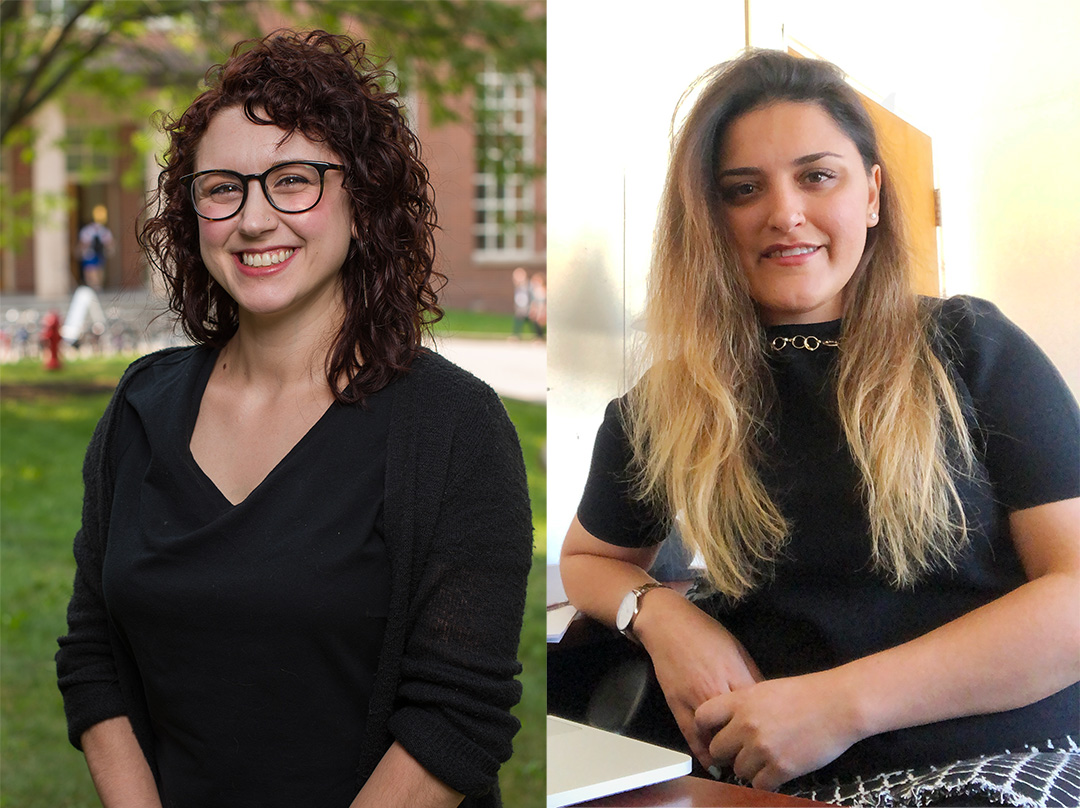
Making childcare more accessible
Carsey School of Public Policy Research Assistant Professor Dr. Jess Carson and Ph.D. student Kamala Nasirova met the summer of 2021 through a mutual colleague. Nasirova, a second-year student in UNH’s education program, was interested in policy-related work that aligned with her interests in education, equity, inclusion and student opportunity gaps. At the time, Carson was preparing for a major research project examining the availability of early childhood care in New Hampshire and Vermont’s Upper Valley region and was seeking graduate support. Nasirova’s research interests, fellowship experience with the Vermont Agency of Education, and master’s degree work at Saint Michael’s College made her the ideal candidate.
"Because Kamala was seeking some applied policy research experience and opportunities to sharpen her statistical skills, working at the Carsey School has allowed her to exercise her policy interests in a way that doesn't exist anywhere else at UNH," said Carson. Read more
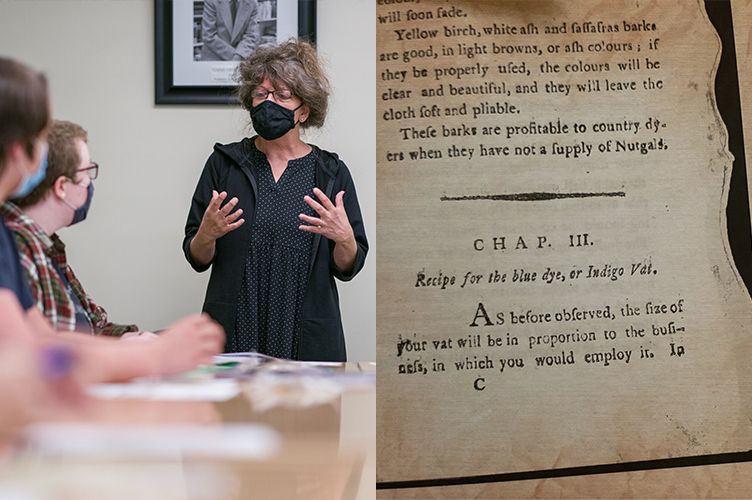
A shared history
Before graduating last September from UNH’s history/museum studies program, Amy Denham worked with Kimberly Alexander, director of museum studies in the department of history, on recreating an 18th/early 19th century recipe for indigo dye as part of her final project. Denham found the historic recipe in a digital version of The Country Dyer’s Assistant (originally published 1798) and set to work, collecting the necessary ingredients and supplies she’d need to recreate the deep blue color the same way that post-Revolutionary War Americans did more than two centuries earlier.
Now, Denham can demonstrate and teach this historic dying technique for a whole host of organizations – from schools to museums – including at the Newington Historical Society, where she serves as an archivist.
"One of my goals is helping them find positions and opportunities that will be meaningful throughout their career paths," said Alexander. Read more

Mentoring women economists
For Associate Professor of Economics Reagan Baughman, there is pure joy in seeing the students she has mentored walk as they get their degree at commencement.
“Seeing them learn things they could not do when they started, and where they end up, is why I do what I do,” she says. “Their successes are my successes.”
Baughman had a female mentor herself, and while she acknowledges she also had great male mentors, “She was someone I could identify with easily and I was able to closely connect with her work. I'm not sure if that had to do with gender, but I could just identify with it and see what her life was like—I could see the path that she had gotten through for graduate school, onto getting a job.”
At Paul College, Baughman currently mentors three aspiring women economists—doctoral candidate Tam Nguyen and undergraduate honors students Emily Bolognino and Nicole Justras. Read more
-
Written By:
Nicholas Gosling '06 | COLSA/NH Agricultural Experiment Station | nicholas.gosling@unh.edu














































